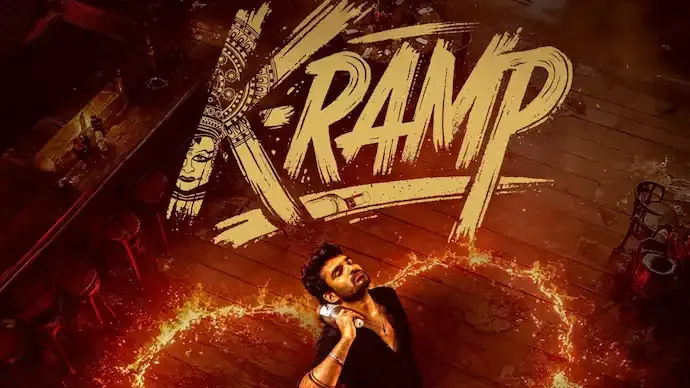Shopping cart
Your cart empty!
Terms of use dolor sit amet consectetur, adipisicing elit. Recusandae provident ullam aperiam quo ad non corrupti sit vel quam repellat ipsa quod sed, repellendus adipisci, ducimus ea modi odio assumenda.
Lorem ipsum dolor sit amet consectetur adipisicing elit. Sequi, cum esse possimus officiis amet ea voluptatibus libero! Dolorum assumenda esse, deserunt ipsum ad iusto! Praesentium error nobis tenetur at, quis nostrum facere excepturi architecto totam.
Lorem ipsum dolor sit amet consectetur adipisicing elit. Inventore, soluta alias eaque modi ipsum sint iusto fugiat vero velit rerum.
Sequi, cum esse possimus officiis amet ea voluptatibus libero! Dolorum assumenda esse, deserunt ipsum ad iusto! Praesentium error nobis tenetur at, quis nostrum facere excepturi architecto totam.
Lorem ipsum dolor sit amet consectetur adipisicing elit. Inventore, soluta alias eaque modi ipsum sint iusto fugiat vero velit rerum.
Dolor sit amet consectetur adipisicing elit. Sequi, cum esse possimus officiis amet ea voluptatibus libero! Dolorum assumenda esse, deserunt ipsum ad iusto! Praesentium error nobis tenetur at, quis nostrum facere excepturi architecto totam.
Lorem ipsum dolor sit amet consectetur adipisicing elit. Inventore, soluta alias eaque modi ipsum sint iusto fugiat vero velit rerum.
Sit amet consectetur adipisicing elit. Sequi, cum esse possimus officiis amet ea voluptatibus libero! Dolorum assumenda esse, deserunt ipsum ad iusto! Praesentium error nobis tenetur at, quis nostrum facere excepturi architecto totam.
Lorem ipsum dolor sit amet consectetur adipisicing elit. Inventore, soluta alias eaque modi ipsum sint iusto fugiat vero velit rerum.
Do you agree to our terms? Sign up

‘K-Ramp’ positions itself as a loud, full-on comedy with emotional undertones, but it ends up confused, insensitive, and poorly executed.
Comedy is inherently subjective, yet ‘K-Ramp’ stretches this notion to its limits. While Malayalam films like Premalu celebrate regional culture with wit and respect, this film’s portrayal of Kerala feels superficial and mocking. The so-called humour often arises not from clever writing but from exaggerated accents and caricatured depictions, making the audience laugh at stereotypes rather than comedy itself.
The plot revolves around Kumar Abbavaram’s character, a stereotypical carefree son of a millionaire, living a lavish yet purposeless life. His father, played by Sai Kumar, sends him to a college in Kerala to instill discipline. What could have been a culturally rich detour instead becomes a sequence of predictable, tone-deaf scenarios.
Kumar falls for Mersi Joy, played by Yukti Thareja, in a classic love-at-first-sight trope, accompanied by objectifying camera angles that feel outdated. As the story progresses, a plot twist introduces Mersi’s mysterious disorder, intending to blend romance with mental health themes. Unfortunately, the film trivializes both, turning sensitive topics like mental health, trauma, and suicide into sources of cheap laughs.
Humour and empathy are at odds throughout the film. Misrepresentation of local culture, coupled with careless treatment of serious issues, undermines any emotional depth. Even visually, romantic sequences are marred by uncomfortable angles, often voyeuristic, while comedic subplots, such as a senior actor’s repeated inappropriate behaviour, stretch believability and reinforce problematic messaging.
Director Jains Nani’s debut is ambitious but lacks clarity. From Kumar’s first encounter with Mersi at a temple procession, the tone is loud, confused, and problematic. Weak screenplay structure, clumsy transitions, and misplaced emotional beats make the narrative feel disjointed. The Kerala backdrop, which could have added a rich cultural dimension, remains underutilized.
Kiran Abbavaram’s performance is a highlight; his energy and commitment inject vibrancy despite the weak material. Yukti Thareja brings sincerity and charm to her role, though the script limits her scope. Sai Kumar delivers credible emotional moments, particularly in confrontational scenes, while Naresh strives to connect his character with the audience.
The second half collapses under forced comedy and disconnected emotional arcs. A sudden father-son sentiment track feels jarring, and the intended message about love, acceptance, and mental health is buried beneath unnecessary comic drama.
On the technical front, Chaitanya Bharadwaj’s music and quirky background score suit the film’s colourful tone, and Sateesh Reddy Masam’s cinematography captures festive visuals effectively. Production design adds polish, but aesthetics cannot compensate for storytelling flaws.
Ultimately, ‘K-Ramp’ squanders potential. With better writing and a sensitive approach to love and mental health, the film could have been engaging. Instead, it becomes a farce that laughs at vulnerability, with its loud energy overshadowing narrative coherence. Kiran Abbavaram’s enthusiasm, Yukti Thareja’s sincerity, and Sai Kumar’s gravitas are commendable, yet the film fails to balance humour, heart, and responsibility.
‘K-Ramp’ serves as a reminder: not all loud or colourful films are entertaining. Poorly handled humour and misrepresentation leave audiences questioning the film’s intent and its understanding of emotional intelligence.
4
Published: Oct 18, 2025